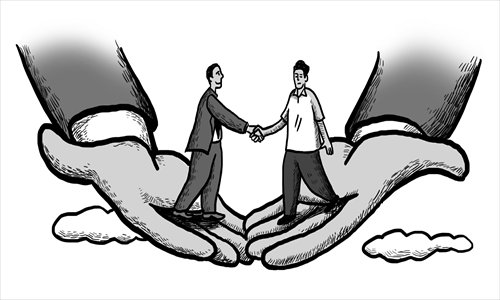Indonesia eyes SE Asian leader role

Later this month, the 21st ASEAN Summit will be held in Phnom Penh, Cambodia.
ASEAN's shock after it failed to produce a joint communiqué at the end of the ASEAN Foreign Ministers' Meeting in Phnom Penh in July was real.
This kind of failure has never happened in the 45 years since ASEAN's inception. Questions abound as to whether there is a crack in ASEAN's unity.
In its history, ASEAN experienced various differences and disagreements, but still managed to come up with joint communiqués.
I, for one, think that this failure was not caused by division among ASEAN members but simply by the host country's lack of ability in handling the situation.
When it faced differences, it was incumbent upon the host to steer the adversaries toward a compromise as happened in earlier disagreements throughout ASEAN's history.
More than ever, the importance of ASEAN's role in the search for a regional order in the South China Sea has been raised by both China and ASEAN itself.
Both should do their utmost to find a solution toward the creation of a regional order where crises management and crises prevention can be handled.
Therefore, the Code of Conduct (CoC) in the South China Sea should be pursued seriously as soon as possible, and made the center piece of the sought after regional order. In this respect, Indonesia's role as an interlocutor in the creation of the CoC is very critical.
Indonesia has been very committed to the idea of a regional order in Southeast Asia, and it has done a lot in its pursuit of that order.
Among other things, it initiated the convening of a series of workshops on the South China Sea that has run for over two decades.
Indonesia wants to keep convincing China on the importance of such an order, to keep its neutrality over the issue while having good relations with both China and the US, and to keep its leading position in ASEAN as its biggest member.
The main reason behind this is Indonesia's continuous quest for Southeast Asia to be free and independent from the dominance or hegemony of the great powers as laid down in the Zone of Peace, Freedom and Neutrality (ZOPFAN) doctrine.
Indonesia also believes that it should play a role in the efforts. If a regional order can be achieved with ASEAN at its center, then peace, stability and development in Southeast Asia can be guaranteed.
Indonesia is willing to make these efforts, because it believes that any regional crisis that arises needs to be tackled by regional solutions first. If necessary, support of the international community can be sought after through the permanent members of the UN Security Council (UNSC).
A case in point is the Cambodian conflict in the 1980s. Indonesia first initiated the Jakarta Informal Meeting followed by the Paris Conference on Cambodia, where the UNSC supported the settlement of the conflict.
The South China Sea claims are not easy to solve, and solutions can only be achieved between the claimants bilaterally or trilaterally because the CoC is not an instrument to solve disputes.
Both the CoC and the Declaration of Conduct should be implemented together as the bases for the creation of a regional order in the South China Sea.
This calls for solid cooperation among involved parties, and such cooperation is imperative lest other powers may take initiatives to resort to an open multilateral approach in the creation of this new regional order.
Once the CoC is established as desired, it should be opened to other powers to joint it, as was the case for ZOPFAN before it.
But it remains to be seen whether Indonesia can get ASEAN united to support such a regional order in the South China Sea through a CoC agreement with China after what happened in Phnom Penh in July.
However, if ASEAN cannot get its act together on this issue, it will no longer be credible on other issues as well, especially on the ASEAN Economic Community to be implemented in 2015.
The author is vice chair of the Board of Trustees at the Center for Strategic and International Studies (CSIS) Foundation, Jakarta. opinion@globaltimes.com.cn